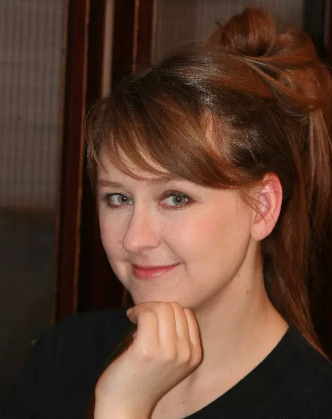 |
Eva Margareta Ekeroth
Ekeroth Founder of Chin Lit
Nationality: Swedish
Language: Swedish, Chinese, English
Profile
Publisher, translator, writer. Founder of Chin Lit, a publishing house dedicated to bringing forward interesting Chinese contemporary fiction and children’s literature to Swedish readers since 2015. She is also a translator of Chinese literature as well as proofreader to cultivate young translators. Ekeroth is the former cultural counselor of Sweden to China, placed at the Embassy of Sweden in Beijing. Previous to that, she worked as the head of culture & PR at the Consulate General of Sweden to Shanghai.
Q&A
Q1: Could you please briefly introduce the market situation of the publishing industry in your country?
The market in Sweden is very small, naturally because it’s a small country with comparatively few inhabitants. But in a European perspective, the reading habits in Sweden are very high compared to other countries, where the biggest part of readers is middle aged women. The translated books are dominated by literature originally in English, but also from the neighboring countries in Northern Europe, especially in Norway. The publishing market is dominated by a couple of few big publishing houses, though at the same time there has emerged new small independent publishing houses, mostly specialized in some way, e.g. French literature.
Q2: Have you ever read any works written by Chinese authors?
Many, mostly contemporary writers. Examples of those I liked: Mo Yan, A Yi, Ge Fei, Su Tong, Yu Hua, Zhao Zhiming, Ren Xiaowen, Cao Kou, Na Yu, Hao Jingfang, Han Song, Lu Nei, Wu Po, Wang Xiaobo, Bi Feiyu.
Q3: Which Chinese writer and Chinese literature is your favorite? Why? (i.e. most impressive and touching)
My absolute favorite is A Yi whose works stay within your heart and mind for a long time. The content of existentialism is general for humankind which is one of the reasons they can be read and understood by anyone in the world. I also like how he in serious subjects puts in a touch of humor. But I also like Bi Feiyu very much who has a solid authorship with a stable quality in all his works, and his understanding and detailed descriptions of human beings and their behavior is outstanding. Unfortunately I have read less female authors but one I really like very much is Ren Xiaowen. She has the qualities of a great writer!
Q4: What kinds of Chinese literature (genres) do you prefer to introduce to your country? Have you ever recommended any before?
All of above I’d like to introduce and actually already have introduced A Yi and some shorter texts by Ren Xiaowen as well. I’d like to introduce more female writers if I find some more that I like. I’m also curious to read more sci-fi.
Q5: Have you ever read Chinese contemporary online literature? Which one do you like best?
Unfortunately, I haven’t. There is so much literature and since I prefer holding a book in my hand, it has not come to that I read online, though I am curious of the online literature.
Q6: Which Chinese literature books do you think could be bestsellers around the world? Or could have a corner in the global market?
That is a very difficult question. First, you cannot predict a bestseller. Second, it is also a bit of luck that is needed, being at the right time at the right place. Also, marketing is important. If only publish a book, and it might be a bestseller already in China, that is not enough. If people will buy a book and tell others about it, they have to know it exists and to know it exists, the information must reach them. So, marketing is needed and one good way to market is to get the writer to attend literary festivals etc, which are covered by media. When it comes to books from nearby countries or in English, the information channel is shorter, when it comes to unknown authors from countries far away, there’s a longer information channel, i.e. it takes more to be seen. I think there’s a genuine curiosity among Swedish readers, but when you buy a book, you probably buy the one recommended by others who read it or you heard about it in media etc.
Q7: Could you please briefly talk about the actual dilemmas that occur during the translating and publishing processes of Chinese literature?
Finding translators, especially for longer texts. There are few translators and most of them have other jobs as well. Financing marketing efforts can really make a difference, such as inviting writers to attend literary festivals etc. No time for social media marketing, busy with production.